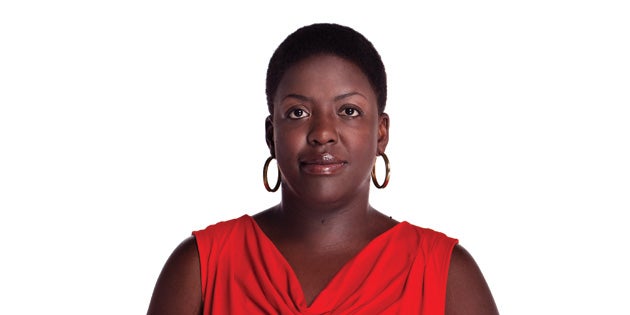The first warning signs appeared during Keisha Hawes’ freshman year at the College of Charleston in 1997.
After a bout with kidney stones sent her to campus health services, a blood test revealed Hawes was diabetic. She began taking medication but otherwise paid little attention to her health and her diet. After all, she thought, a young college student need not be overly worried about such things.
In fact, the diagnosis, coupled with her family history of heart disease, should have been a wake-up call for Hawes, who was on a slow 10-year march to having a heart attack at the age of 31.
Now, as a heart attack survivor and a national spokesperson for the American Heart Association’s Go Red For Women campaign, which seeks to raise awareness about women’s risk factors for heart disease and stoke, Hawes shares her story every chance she gets. She ignored the warning signs and hopes others will learn from her mistakes, especially younger and middle-aged women.
GET INVOLVED: Feb. 6, 2015, is National Wear Red Day.
As a college student in the late 1990s, a heart attack was the furthest thing from Hawes’ mind. She was more focused on finding the right major and doing well in her classes. As valedictorian of her class at Bowman High School near Orangeburg, S.C., Hawes came to the College on an academic scholarship. She initially planned to major in biology and hoped to attend medical school but later changed her major to urban studies.
After graduating from the College in 2001, Hawes went to work in the non-profit sector. She got married a couple years later, and she and her husband Michael soon had their first two children. Life was good until the recession hit and Hawes got laid off from her job. With the loss of her income, she fretted over money and bills. Trying to save a few bucks, she stopped taking her medications for diabetes and high blood pressure.
She eventually found work waiting tables at a hotel restaurant in Charleston. Her mangers soon realized she could wear many hats and she began filling several different roles, including server, front desk attendant, night auditor, and housekeeper. The long hours, erratic schedule and poor eating choices played havoc with her blood sugar levels.
“I was working around the clock and not making my health a priority,” she says.
After one particularly exhausting day in May 2011 Hawes sought out the comfort of a fast food meal. By the time she got home, the meal was weighing on her and she felt the need to lie down. She thought the burning sensation in her chest was indigestion.
When the pain did not subside, Hawes convinced her husband that he should stay home with the kids while she drove herself to the emergency room in the family’s only car.
At the hospital her blood pressure registered “three digits over three digits.” She knew that wasn’t good, but the words “heart attack” did not enter her mind until she heard the cardiologist tell her she had just suffered one.
She underwent a stent procedure to clear a 95 percent blockage of her main coronary artery. “I’m very fortunate to still be here,” she says.
 Following her recovery, Hawes changed her diet and started to exercise. She has walked the Cooper River Bridge Run and participates in other local health-related events. In 2012 she gained extra incentive to take care of herself when she gave birth to her third child.
Following her recovery, Hawes changed her diet and started to exercise. She has walked the Cooper River Bridge Run and participates in other local health-related events. In 2012 she gained extra incentive to take care of herself when she gave birth to her third child.
On a whim one day in 2013, she went to a casting call for heart attack survivors put on by the American Heart Association. Hawes’ smile, warm personality and confidence caught the attention of the event’s organizers. And out of hundreds of women, Hawes was selected to be a national survivor spokeswoman for the organization’s Go Red campaign. She was flown out to Los Angeles for press interviews and a video and photo shoot. She stayed at a posh Beverly Hills Hotel and felt like a celebrity.
EXPLORE: See other alumni who are boundless.
Since then, she’s done dozens of interviews for radio, television and newspapers in an effort to raise awareness about heart disease in women. Last summer she was featured on NBC Nightly News with Brian Williams in a story about younger women experiencing heart attacks.
“It’s been a pretty exciting ride,” says Hawes, who lives in Moncks Corner, S.C., and works as a customer service specialist for SCE&G.
WATCH: See Keisha Hawes featured on NBC Nightly News with Brian Williams.
Hawes says she’s learned to reduce stress in her life and to moderate her motherly instincts to want to take care of everyone. “Women are the caretakers of everyone else at a fault to ourselves,” she says. “We need to be advocates for ourselves.”
Looking back on the warning signs she missed and the unhealthy lifestyle she had during college and in her 20s, Hawes says she wants to impress upon younger people that the decisions they make now can affect them years down the road. “If we don’t take care of our bodies now, it impacts the quality of our lives later.”






